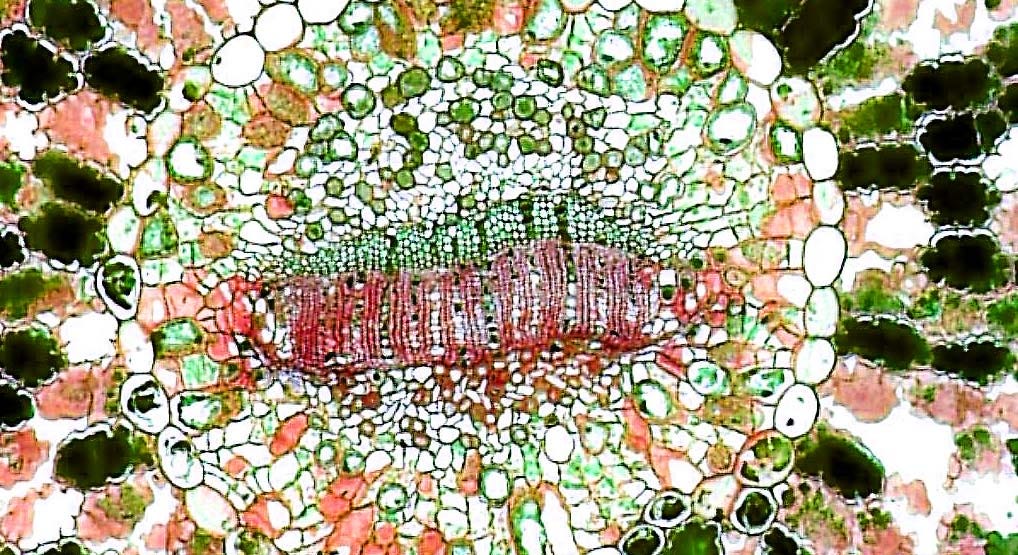
Philosophy | Mindfulness
This theory contends that consciousness is a trait of all living cells rather than being unique to the brain, offering an alternative perspective on the mind-body connection.
This essay delves deeply into cellular awareness, examining its possible relevance to our comprehension of reality and unravelling its consequences.
Understanding the nature of consciousness is necessary before exploring the complexities of cellular awareness. Being conscious is having an all-encompassing awareness of one’s internal and external experiences, including thoughts, feelings, and the world. Conventional wisdom is that our awareness originates in our brains, namely in the intricate connections between neurons. Cellular consciousness, on the other hand, casts doubt on this long-held belief by arguing that all living things are capable of consciousness.
The Coming of Age of Cellular Awareness
Cellular intelligence, which studies the remarkable capacities of individual cells, is where the concept of cellular awareness first emerged. The basic building blocks of life, cells, may exhibit consciousness beyond straightforward biochemical reactions through their intricate activities and environmental responses. Scientists are increasingly learning that cells have incredible cognitive capacities, including the ability to interact, adapt, and even make decisions. We can speculate that cells have consciousness and can contribute to an organism’s overall intelligence based on what we know now.
The Mind-Body Link Revealed
Cellular consciousness profoundly affects our comprehension of the mind-body relationship, which has far-reaching ramifications. There has been a tendency to view the mind-body link linearly, with the mind controlling the body. On the other hand, cellular consciousness proposes a two-way street in which the mind and body engage in a constant debate. Because every cell has its own consciousness, the sum of all cells affects the whole, including the mind and body.
Cellular Consciousness and Its Quantum Basis
Exploring the intriguing world of quantum physics is essential for completely understanding cellular awareness. The seemingly contradictory character of quantum mechanics, the subfield of physics concerned with subatomic particle behavior, has long perplexed physicists. A fundamental idea in quantum mechanics is entanglement, which states that particles can become coupled no matter how far apart. The intriguing similarities between this concept and cellular consciousness imply an essential interconnection of all cells and a collective awareness that goes beyond the limitations of time and place.
Molecular Mechanisms of Communication
The complex network of information exchanged between cells is fundamental to cellular awareness. Chemical messengers and electrical impulses are just two of the many signalling systems that cells use to communicate with one another and coordinate their actions. Cells rely on this communication network to keep homeostasis and react to environmental changes. According to proponents of cellular consciousness, this kind of communication goes beyond simple coordination. It enables cells to contribute to a collective consciousness by sharing information, knowledge, and experiences.
What Epigenetics Can Do
Cellular awareness relies heavily on epigenetics, the study of heritable changes in gene expression apart from changes to the underlying DNA sequence. Cells can change their gene expression patterns in response to environmental stimuli via epigenetic changes rather than by modifying their genetic coding. This extraordinary capability, which allows cells to alter their actions and reactions, supports the idea of cellular consciousness.
Awareness in Organisms with Only One Cell
It is fascinating to think about the consciousness of single-celled creatures, even though the concept of cellular consciousness is usually linked with multicellular creatures. Microbes like bacteria and protozoa show signs of extraordinary intelligence that go beyond basic survival mechanisms. We can learn more about the evolutionary roots of consciousness and its nature by delving into the phenomenon of cellular consciousness in single-celled creatures.
Molecular Awareness and Well-being
Beyond theoretical considerations, cellular consciousness has practical applications for human health and wellness. Cellular consciousness influences the mind-body link, affecting mental and physical health. Unbalances and illness can result from hiccups in cellular communication and awareness. Conversely, the mind-body link may be strengthened and general health improved by cultivating cellular consciousness through mindfulness and meditation.
Moral Issues and Their Consequences
There are serious moral concerns and ramifications around the idea of cellular consciousness. Is it morally acceptable to treat living things in a certain way if each cell has its own consciousness? What impact does humankind’s handling of natural resources, including the food we eat and the places we build, have on the collective mind? By delving into these moral questions, we can contemplate the weight of duty accompanying our position as consciousness keepers.
Cellular consciousness questions our conventional beliefs about consciousness and the mind-body connection. It raises questions about the possible consequences for our comprehension of life and encourages us to investigate the intricate connections between all living cells. The more we learn about cellular consciousness, the more we realize that we are on a path of deep introspection, trying to make sense of who we are.
Please follow me for more thoughtful articles. Thanks!